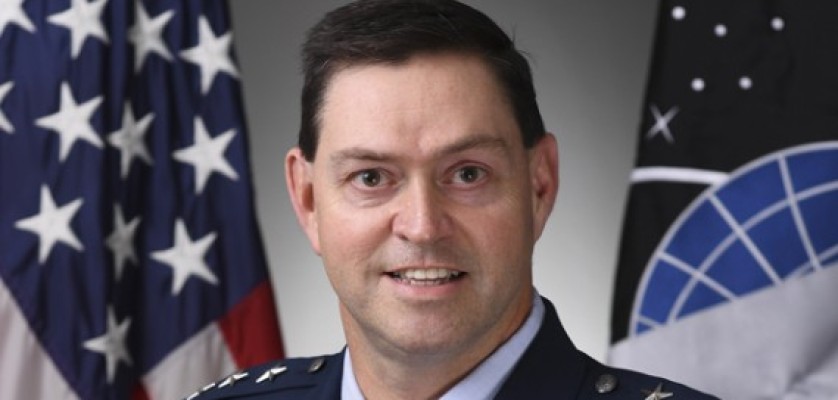The Senate Sept. 29, 2022, easily confirmed Lt. Gen. B. Chance Saltzman to be the U.S. Space Force’s next Chief of Space Operations, positioning him to lead the nation’s newest military service at a crucial moment in its young and still evolving life.
With his confirmation in hand as well as his promotion to general, Saltzman is poised to step into the position held by Gen. John “Jay” Raymond who has served as the Space Force’s highest-ranking military officer since the service was created on Dec. 20, 2019. Raymond is retiring after a 38-year career that spanned senior service in both the Air Force and Space Force.
“I’m humbled and honored to be confirmed as the next Chief of Space Operations,” Saltzman said. “I look forward to leading the US Space Force and building on the strong foundational leadership General Raymond has provided for almost three years.”
Saltzman will lead the Space Force and its 16,000 Guardians and civilians at a key moment as it transitions more fully from the early stages of its creation that focused heavily on organization, administration, doctrine, and sustainment to a more operational posture and modernizing the constellation of satellites that are at the heart of the Space Force’s operation.
All of that will happen while space is rapidly becoming more contested, militarized, and critical to military operations and everyday life.
Saltzman, who previously served as Space Force Deputy Chief of Space Operations for Operations, Cyber, and Nuclear, acknowledged that mandate and the importance of space during his Senate Armed Services Committee confirmation hearing Sept. 13.
“Space is truly a critical domain for U.S. interests, so we must all be clear-eyed in our understanding that our strategic competitors have invested heavily in fielding systems capable of disrupting, degrading and even destroying our space capabilities,” Saltzman said at the time.
“If confirmed I will work to ensure that the Space Force is ready to protect these vital interests from these threats,” he said.
Department of the Air Force Secretary Frank Kendall welcomed Saltzman’s confirmation while also praising Raymond’s contributions in leading the Space Force since its birth.
“Our One Team has benefited from sound and thoughtful leadership at our most senior levels,” Kendall said. “We honor General Raymond’s contributions to establish the Space Force and we welcome General Saltzman as he takes the lead. I’m confident in Chance’s ability and judgement and know our Space Force will continue to provide key capabilities to the joint force and our nation’s defense.”
Raymond, who worked closely with Saltzman in recent years as the Space Force was created, offered similar congratulations and praise.
“Congratulations to Chance Saltzman on his confirmation to serve as the next Chief of Space Operations,” Raymond said. “I couldn’t be more excited for the Saltzmans and for our Space Force. The team is in great hands.”
In a reflection of Saltzman’s broad support of his selection to be the next CSO, his nomination was bunched with 14 other military officers of assorted rank chosen for promotion. All were approved in the Senate by “acclamation.”
Despite its small size compared to the other military services, the Space Force’s strategic importance is clear. During his confirmation hearing Saltzman pledged to build on Raymond’s accomplishments. “The inspired work that General Raymond started has set us on a path. It is a path towards advanced capabilities, modern, resilient architectures, and innovative approaches to meet our service missions.”
When asked for his biggest worry surrounding the shifting conditions in space, Saltzman offered an assessment that is now widely shared.
“We are still the greatest spacefaring nation on the planet,” Saltzman said at the time. “The Space Force’s capabilities … are extremely capable and I still put us at the head of the table. Unfortunately, our adversaries are investing heavily to close that gap and supersede us,” he said.
“I’m worried about the pace with which they are making those changes, China first amongst them but Russia also which is committed to investing heavily in the kinds of capabilities that are going to disrupt, degrade or even destroy our on-orbit capabilities.”
Offsetting that, he told the committee, requires innovation, new thinking, a different “culture” and new relationships with partners and business.










